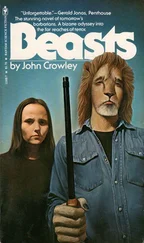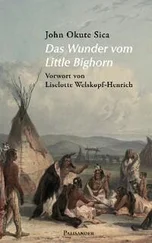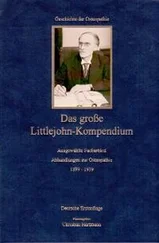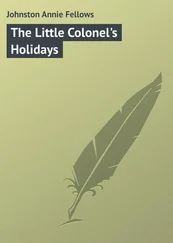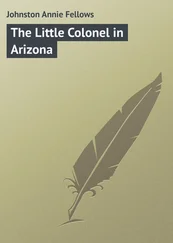He had fooled them. No matter what happened now, whether he reached the place they set out for or didn’t, whether he journeyed or stayed behind, he had his tale. He had it in his hand. Let it end: let it end: it couldn’t be taken from him. He couldn’t go where all of them were going, but it didn’t matter, for he’d been there all along.
And where was it, then, that all of them were going?
“Oh, I see,” he said, though no sound came from his lips. The something that had begun to open in his heart opened further; it let in great draughts of evening air, and swifts, and bees in the hollyhocks; it hurt beyond pain, and wouldn’t close. It admitted Sophie and his daughters, and his son Auberon too, and many dead. He knew how the Tale ended, and who would be there.
“Face to face,” Marge Juniper said, passing by him. “Face to face.” But Smoky heard nothing now but the wind of Revelation blowing in him; he would not, this time, escape it. He saw, in the blue midst of what entered him, Lilac, turning back and looking at him curiously; andby her face he knew that he was right.
The Tale was behind them. And it was to there they journeyed. One step would take them there; they were there already.
“Back there,” he tried to say, unable himself to turn in that direction, back there, he tried to tell them, back to where the house stood lit and waiting, the Park and the porches and the walled garden and the lane into the endless lands, the door into summer. If he could turn now (but he could not, it didn’t matter that he could not but he could not) he would find himself facing summer’s house; and on a balcony there, Daily Alice greeting him, dropping from her shoulders the old brown robe to show him her nakedness amid the shadows of leaves: Daily Alice, his bride, Dame Kind, goddess of that land behind them, on whose borders they stood, the land called the Tale. If he could reach those stone gateposts (but he never would) he would find himself only turning in at them, Midsummer Day, bees in the hollyhocks, and an old woman on the porch there turning over cards.
Under an enormous moon full to bursting Sylvie traveled toward the house she had seen, which seemed to be further and further off the closer she came to it. There was a stone fence to climb, and a beech-wood to go through; there was finally a stream to cross, or an enormous river, rushing and gold-foamed in the moonlight. After long thought on its banks, Sylvie made a boat of bark, with a broad leaf for a sail, spider-web lines and an acorn-cup to bail with, and (though nearly swept into the mouth of a dark lake where the river poured underground) she reached the far bank; the flinty house, huge as a cathedral, looked down on her, its dark yews pointing in her direction, its stone-pillared porches warning her away. And Auberon always said it was a cheerful house!
Just as she was thinking that she never would quite reach it, or if she did would reach it as such an atomy that she would fall between the cracks of its paving-stones, she stopped and listened. Amid the sounds of beetles and nightjars, somewhere there was music, somber yet Somehow full of gladness; it drew Sylvie on, and she followed it. It grew, not louder but more full; she saw the lights of a procession gather around her in the furry darkness of the underwood, or saw anyway the fireflies and night-flowers as though in procession, a procession she was one of. Wondering, her heart filled with the music, she approached the place to which the lights tended; she passed through portals where many looked up to see her enter. She put her feet in the sleeping flowers of a lane, a lane that led to a glade where more were gathered, and more coming: where beneath a flowering tree the white-clothed table stood, many places set, and one in the center for her. Only it was not a banquet, as she had thought, or not only a banquet; it was a wake.
Shy, sad for those saddened by whosoever death it was they mourned, she stood a long time watching, her present for Auberon held tight under her arm, listening to the iow sounds of their voices. Then one turned at the end of the table, and his black hat tilted up, and his white teeth grinned to see her. He raised a cup to her, and waved her forward. Gladder than she could have imagined to see him, she made her way through the throng to him, many eyes turning toward her, and hugged him, tears in her throat. “Hey,” she said. “Heeeey.”
“Hey,” George said. “Now everybody’s here.”
Holding him, she looked around at the crowded table, dozens present, smiling or weeping or draining cups, some crowned, some furred or feathered (a stork or somebody like one dipped her beak in a tall cup, eying with misgivings a grinning fox beside her) but Somehow room for all. “Who are all these people?” she said.
“Family,” George said.
“Who died?” Sylvie whispered.
“His father,” George said, and pointed out a man who sat, bent-backed, a handkerchief over his face, and a leaf stuck in his hair. The man turned, sighing deeply; the three women with him, looking up and smiling at Sylvie as though they knew her, turned him further to face her.
“Auberon,” Sylvie said.
Everyone watched as they met. Sylvie could say nothing, the tears of Auberon’s grief were still on his face, and he had nothing that he could say to her, so they only took hands. Aaaah , said all the guests. The music altered; Sylvie smiled, and they cheered her smile. Someone crowned her with odorous white blooms, and Auberon likewise, taking chaplets of locust-flower from the locust-tree which overhung the feast-table. Cups were raised, and toasts shouted; there was laughter. The music pealed. With her brown ringed hand, Sylvie brushed the tears from her prince’s face.
The moon sailed toward morning; the banquet turned from wake to wedding, and grew riotous; the people stood up to dance, and sat down to eat and drink.
“I knew you’d be here,” Sylvie said. “I knew it.”
In his certainty that she was here now, the fact that Auberon had himself not known at all that she would be here dissolved. “I was sure too,” he said. “Sure.
“But,” he said, “why, a while ago—” he had no sense of how long ago it had been, hours, ages “— when I called your name, why didn’t you stop, and turn around?”
“Did you?” she said. “Did you call my name?”
“Yes. I saw you. You were going away. I called ‘Sylvie!’ ”
“Sylvie?” She looked at him in cheerful puzzlement. “Oh!” she said at length. “Oh! Sylvie! Well, see, I forgot. Because it’s been so long. Because they never call me that here. They never did.”
“What do they call you?”
“Another name,” she said. “A nickname I had when I was a kid.”
“What name?” he said.
She told him.
“Oh,” he said. “Oh.”
She laughed to see his face. She poured foaming drink into his cup and offered it to him. He drank. “So listen,” she said. “I want to hear all your adventures. All of them. Don’t you want to hear mine?”
All of them, all of them, he thought, the honeyed liquor he drank washing away any sense he might have had of what they could be, it was as though they were all yet to happen, and he would be in them. A prince and a princess: the Wild Wood. Had she then been there, in that kingdom, their kingdom, all along? Had he? What anyway had his adventures been? They vanished, crumpling into broken nothings even as he thought of them, they became as dim and unreal as a gloomy future, even as the future opened before him like a storied past.
“I should have known,” he said laughing. “I should have known.”
“Yes,” she said. “Just beginning. You’ll see.”
Читать дальше

